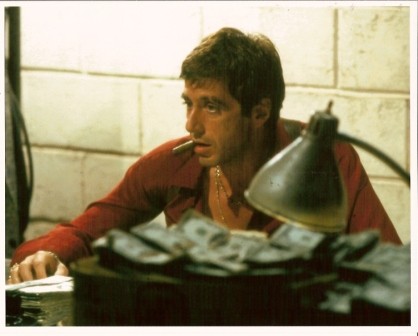Do you spend more than you make? I used to.
When I started working as an editor at a Washington, D.C.-based newsletter publishing company, my salary was $14,000. My wife was earning less than that. Our two salaries barely covered our basic living expenses. On top of that, I was attending graduate school and we were paying off student loans. Then our first son was born. For the first six months of his life, he slept in an open drawer in our bedroom.
Meanwhile, I was spending money I didn’t have on things I couldn’t afford. Struggling to pay for my education and brand-new family, I overspent because it seemed to provide some happiness, some relief.
But the thrill of buying stuff soon waned. Each new object brought less relief. Eventually, I realized that I was getting 80 percent of my pleasure from experiences that didn’t cost much money. But recognizing that you don’t need junk food and kicking the habit are two distinct things.
Here’s how I got myself out of debt:
First, I got rid of all my credit cards. I figured that what I couldn’t buy with cash was either worthless or worth saving for. Although the fear of going without credit was great, I never experienced any anxiety after I trashed the cards. It seemed like a drastic decision before I made it, but after half an hour I never gave it another thought.
The second thing I did to get out of debt was to start saving. I had made myself a promise that I would save a percentage of my take-home pay, but I never did it. The breakthrough came when I was talking to a friend about how the IRS manages to collect a big chunk of our income through the evil genius of withholding. I recognized I had to do the same thing to myself. The only way I was going to save money was through force.
The solution was available in a new-at-the-time savings-bank program, one that withdrew a set amount of money from my primary account every month and put it in another one. That program allowed me to gradually increase my saving from 10 percent of my income to 25 percent and pay down my debt in a few years.
If you are spending more than you are making, get rid of your credit cards. And to get used to spending less, remind yourself repeatedly that most of the junk you buy (a) becomes unused after a few months and (b) doesn’t provide you with much value anyway. Remember that the best things in life – the picnics you have with your family, the walks you take by yourself, the time you spend with your friends – are free, or nearly so.
Create a separate bank account that you’ll use to pay down your debt, or have your debts automatically deducted from the one account you have. You might even consider a debt consolidator. (But watch out. Most of them are crooked.)
Increase the amount of your take-home that goes into debt payments every month. You might start, for example, with 10 percent and then increase that by 5 percent a month. Six months from now, you could be living on half of what you spend now – and I’ll bet you will be feeling a lot better about yourself. You’ll have less stress, more energy, more confidence, and the beginnings of a lifelong habit of wealth building.
There are so many ways to save money. You can spend less on just about anything without giving up either the pleasure you take in buying or the quality you get from your purchases.




